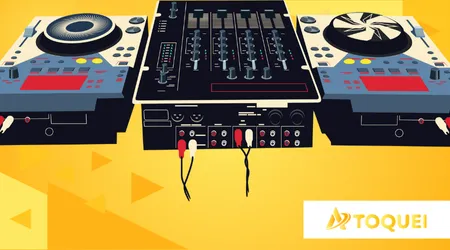Compilations, reissues or remasters: what's the difference and why do they matter in music?

The Essence of Collections
Some compilations, reissues or remasters, also known as compilation or greatest hits, is a curation of tracks.
Advertisements
It brings together the greatest hits of an artist or band, offering an overview of their career.
It's the gateway for anyone who wants to discover an artist's work without having to delve into their complete discography.
Generally, songs are arranged in chronological order, highlighting the evolution of the sound.
They serve an obvious commercial purpose, but they also have significant cultural value. They can introduce new audiences to classical artists while maintaining their relevance.
Advertisements
It's like a book summarizing great literary works; it doesn't replace the original, but it offers a clear and concise overview of the content. It's a starting point for the listener's journey.
Artists like Queen and Elton John had their careers propelled by iconic compilations that became ubiquitous. These albums became true monuments in music.
The Purpose of Reissues
A reissue is a reissue of an existing album, often with additional content. This can include bonus tracks, demos, live recordings, or previously unreleased material.
The main purpose of a reissue is to celebrate a milestone, such as a 10th, 20th, or 30th anniversary of the original release. It offers a behind-the-scenes look at the creation process.
The album “Sgt. Pepper's Lonely Hearts Club Band” by the Beatles was reissued for its 50th anniversary in 2017. The edition featured new mixes and demos, revealing the creative process.
The reissue preserves the album's original integrity but enriches it with context and additional material. It's not a new version, but rather an expanded experience.
For dedicated fans, reissues are treasures. They allow them to delve deeper into the art of their favorite musicians, discovering secrets and alternative versions.
Read more: Top 5 Headphones for Musicians Practicing at Home
The Technology Behind Remasters
Remastering an album is the process of taking the original recording and rebalance the audio to current technological standards. This doesn't change performance, but it improves sound quality.
Sound engineers work on the original master tape to enhance clarity, volume, and dynamics. The goal is to make the album sound better on modern audio systems.

Remasters can correct flaws in the original recording, remove unwanted noise, and breathe new life into old tracks. It's a technical endeavor, but with an artistic touch.
Mastering a '70s album for today's digital formats, for example, prevents the sound from sounding muffled or dull. It revitalizes the listening experience.
A notable example is the work of Apple Corps with the Beatles catalog, where entire albums were remastered to CDs and streaming services in 2009.
++ Remix or Remaster? Understand the differences between updated discs
Relevance and Impact on the Music Market
The difference between the three categories is more than technical; it reflects the intention behind each release.
A compilation is aimed at the general public, a reissue at fans, and a remaster at technical improvement.
In 2024, the Recording Industry Association of America (RIAA) reported that vinyl sales reached their highest level in 35 years.
This phenomenon is driven, in large part, by reissues and remasters of classic albums.
This return to physical formats demonstrates the public's desire for a more tangible experience. People are looking for something they can touch, an object that contains art.
++ Digital piano reviews for beginners
The three approaches coexist in the market, each with its own target audience. The following table illustrates the main distinctions between Collections, reissues or remasters:
| Feature | Collection | Reissue | Remaster |
| Content | Best songs by an artist | Original album + bonus material | Original album with enhanced audio |
| Public | General, new listeners | Dedicated fans | Fans and audiophiles |
| Objective | Introduce an artist, career summary | Celebrate a milestone, give context | Improve sound quality |
| Format | Varies, but popular on vinyl and streaming | Box sets, deluxe editions | Vinyl, CD, Hi-Fi streaming |
Why Do They Matter?
In a scenario dominated by streaming, where music is a constant flow, the value of the album as a complete work can be diluted. Reissues and remasters revive this idea.
They remind us that music is not just a product, but an art form that deserves to be preserved and revisited. They are time capsules that connect the past to the present.
The project “The Pink Floyd Remasters”, for example, revitalized an iconic catalog for a new generation. Young people were able to hear the grandeur of "Dark Side of the Moon" in its entirety.
The launch of “Collections, reissues or remasters” It's not a sign of a lack of creativity. On the contrary, it's a celebration of legacy, proof that art stands the test of time.
++ Comparison: Fender vs Gibson electric guitar
They keep music alive, relevant, and accessible. They allow younger generations to discover artists, while older fans revisit them with a fresh perspective.
In an industry that values constant innovation, respect for history proves to be a differentiator. What would music be, after all, without the echo of its own memories?
Conclusion
After all, the choice between collections, reissues or remasters reflects the listener's intention: whether for an introduction, a deep immersion, or a superior audio experience.
Each has its place and importance in the industry. What's unanimous is the value of preserving and giving new meaning to the music that shaped us.
They are the link between the past and the present, ensuring that music continues to be a vibrant and ever-evolving cultural force.
Frequently Asked Questions
1. Is a remaster the same thing as a reissue?
No. A remaster focuses on audio quality, while a reissue is a re-release of the original album, often with bonus material, without necessarily having the audio remastered.
However, it is common for a reissue to include remastered tracks.
2. What is the best option for a new fan of a band?
A compilation album is the best place to start. It offers a summary of the band's greatest hits and gives a good idea of the band's style and evolution throughout their career.
3. Why are remasters important even with high-quality streaming?
Even with high-quality streaming, the quality of the original file matters.
The remastering process ensures that the original master tape is optimized for today's audio systems, resulting in a superior listening experience for the listener.
